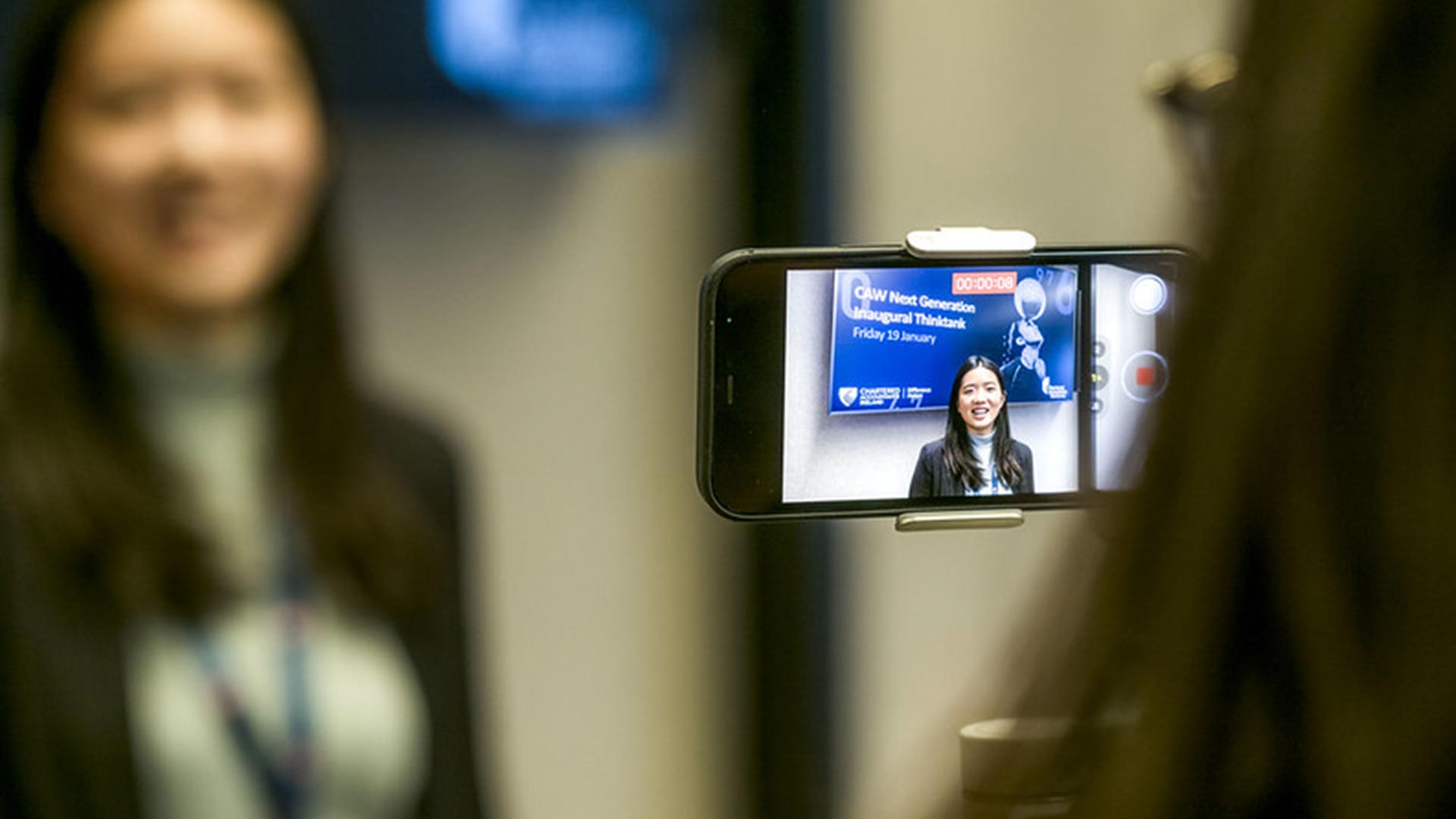Wooing The Next Generation Of Workers

TAKEAWAYS
- Gen Z-ers are entering the global job market at one of the most challenging moments in recent memory.
- Gen Z-ers want work that is interesting and challenging; they also want mentoring options. They want to be spoonfed but also have the liberty to explore what to do on their own.
- Many of them are passionate about social responsibility, and they expect the same of the companies they work for.
At a time when the future of employment seems more fluid than ever, a new generation is starting to make its presence felt in the workforce. Born between 1997 and 2016, the oldest members of the cohort known as Generation Z are entering the global job market at one of the most challenging moments in recent memory. Not only are developed economies still suffering from COVID-19 hangovers, the impact of China’s pandemic policies continues to ripple out beyond its borders. At the same time, inflation is on the rise and some kind of global downturn seems to be all but guaranteed, according to widespread reporting from the local media as well as leading international voices such as The Economist, Financial Times and Wall Street Journal. Two recent Bloomberg polls place the probability of recession in the US and the Eurozone in the next 12 months at 50% and 80%, respectively. In addition, this is unfolding against a backdrop of a supposed “quiet quitting” epidemic, where employees strictly adhere to their official working hours and put no more effort into their jobs than is absolutely necessary. Finally, there is the continuing conflict in Ukraine, which shows no signs of abating.
Whatever the profession or industry, the current situation is clearly challenging, with Jessica Wang, Managing Director of Hays China, noting that the oldest Gen Z-ers are facing strong headwinds – from missing out on their first job opportunities to having their final years of school interrupted. “In this new era of work, employers need to ensure they properly understand Gen Z-ers – including what motivates them – in order to create the perfect workplace to attract and retain them,” wrote Ms Wang, in an article published on Hays.com.sg.
In Singapore, the Monetary Authority of Singapore (MAS) estimated earlier this year that more than 9,000 jobs in the financial sector would open up in 2022. Filling these vacancies might prove challenging, as MAS Managing Director Ravi Menon noted in his remarks at private equity and venture capital conference SuperReturn Asia in September. “Labour supply may continue to remain weak. Labour force participation and non-resident labour flows may not fully recover to pre-pandemic levels,” he said. “This means continued labour market tightness and wage pressures…”
According to recent studies, Gen Z and millennials currently make up approximately 38% of the global workforce, and this percentage will rise to about 58% by 2030.
Source: How prepared are employers for Generation Z?Another 2022 survey by PwC found that Gen Z workers in Singapore are more likely to switch jobs over the next 12 months compared to other age groups, at 36%. When employees were asked about the key factors behind this, 61% cited financial rewards, and 29% highlighted that they will ask for a pay raise.
Source: PwC’s Global Workforce Hopes and Fears Survey 2022
THE WORKPLACE WISHLIST
So, what do these new joiners want? According to Benjamin Wong, CEO and Co-Founder of Kinobi, a career accelerator firm for Gen Z-ers, it is the best of all worlds. “They want work to be interesting and challenging but also to have mentoring options and processes that are in place (to facilitate that). They want to be spoonfed, but also be given the liberty to explore what to do for themselves.” In other words, Gen Z-ers may be comfortable with taking plenty of directions at work as well as being self-starters; indeed, they might expect to have both options in their ideal jobs.
In practical terms, Stacy Seah, CMO Lead, APAC, Microsoft, describes this as “intrapreneurial spirit”, where employees within a large organisation such as Microsoft can function as entrepreneurs. She elaborated on one such example at a Merdeka Collective panel discussion, where a group of Microsoft employees made a business case for an idea they came up with. It had nothing to do with management directives, and they had made it happen by dint of their own initiative and hard work. That these employees were all women in tech speaks to the younger generation’s passion for social responsibility, while the fact that they were of varying ages demonstrates that there is common ground among all generations. The Merdeka Collective is a mentoring programme under the Jurong Spring Community Centre for graduating local university students that brings together Gen Z-ers, Millennials and Gen X-ers.
In media reports, Gen Z-ers are associated with a passion for “doing the right thing”, and they require the same of the companies they work for. McKinsey & Company reports that Gen Z-ers “mobilise themselves for a variety of causes. They believe profoundly in the efficacy of dialogue to solve conflicts and improve the world”. But Kinobi’s Mr Wong cautions against such global generalisations as, in his experience, some Gen Z-ers adopt certain causes because it is expected of them. “I believe to some, it’s more of a branding rather than a true (belief in the) cause – somewhat like a fashion accessory.”
NEW RULES FOR THE ESTABLISHMENT
Of course, this does not take away from the fact that human resource (HR) professionals are recommending that corporations, especially MNCs, be mindful of their environmental, social and governance (ESG) standards. “Work is a bigger part of people’s identities, and so is social responsibility in various ways, especially for Gen Z,” says Pranav Sharma, Partnerships & Alliances Lead, impress.ai. “It is common for people to hold firms they work for, or whose products and services they consume, to a higher standard. Of course, companies that fulfil this expectation can also expect a more driven and fulfilled employee.”
Getting driven and fulfilled employees is no doubt something that most companies want, and it certainly seems that Gen Z-ers – and everyone who has experienced COVID-enforced flexible working hours – have specific wants. “What Gen Z-ers want is to be able to have a three-day work week at home and two days in the office. Having board games (and other such facilities) in the office is also good,” says Mr Wong. Flexible working time is likely related to the fact that Gen Z-ers are the first true digital natives, as the Internet and social media have always been a part of their lives. This might mean that Gen Z-ers are as comfortable working on their mobile phones as they are on desktops.
Gen Z-ers might also be used to building relationships by using digital tools, and reaching out to peers and seniors with these tools. HR professionals recommend that companies invest in the right platforms to enable such connectivity, to take full advantage of this characteristic of Gen Z-ers’, above and beyond any superficial ESG moves. “Companies must create quality work and good growth environments to attract top talents,” says Mr Sharma. “Making the work impactful or having a social impact/ESG element can add to that, but it is not the core of it. It is also necessary to give employees clarity and manage expectations with them upfront – versus overpromising.”
Finally, there is also the matter of a mismatch between expectations and reality, such as the issue of “quiet quitting” and the like. This may be overblown when it comes to how it truly relates to Gen Z, as noted by Deputy Prime Minister (DPM) and Finance Minister Lawrence Wong, in his speech at the Singapore Institute of Technology graduation ceremony in October this year. “It’s not surprising why these days, you hear people talking about ‘quiet quitting’; or in China, they say ‘lying flat’. But these sorts of thoughts are not new,” DPM Wong pointed out. “When I was about the age of the graduates here today in the late 80s and early 90s, the media was portraying my generation as ‘slackers’. The Gen X was supposedly slackers and lazy, but I think we turned out okay.”
This article was first published by ISCA at the following URL: https://journal.isca.org.sg/2022/11/23/wooing-the-next-generation-of-workers/pugpig_index.html












